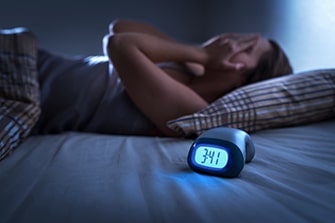How Much Rest Do We Really Need?
Getting regular, quality sleep is important to long-term health. Many people struggle with sleep problems and should seek help if they have trouble getting to sleep, staying asleep or do not feel rested after arising. Sleep aids are not the only treatment for sleeplessness. Professionals can discuss with you many proven, holistic treatments to promote quality rest. However, before seeing a professional, it is important to do your homework and learn how much sleep we really need on a regular basis.
There is not an exact answer to this question of sleep or rest because it depends on many factors such as age, health and other conditions.
According to the National Sleep Foundation, an independent nonprofit devoted to sleep issues, a basic suggested starting point of sleep need at various stages of life is:
- Adults (18+) — 7-9 hours
- Teens (11-17 years) — 8.5-9.5 hours
- School Age Children (5-10 years) — 10-11 hours
- Preschoolers (3-5 years) — 11-13 hours
- Toddlers (1-3 years) — 12-14 hours
- Infants (3-11 months) — 14-15 hours
- Newborns (0-2 months) — 12-18 hours
The hour range doesn’t mean that you can choose any amount of sleep within that range. Instead, you’re supposed to use this range to estimate not only your individual basal sleep need, but also your sleep debt.
The personal amount of rest that your body needs to get every night is your baseline sleep need. Sleep debt is the amount of sleep that you owe yourself for staying up late, rising early or not having a night of rest.
While it may be possible to “catch up” a little the next night, catching up on sleep does not always happen the way we plan. That is why we may notice a fuzzy attention span or be less energetic for a few days after a late night out on the weekend, for example.
Dr. Raghu Reddy, a sleep medicine specialist at the University of Arkansas for Medical Sciences, explained,
“Yes, people can make up for lost sleep on another day. The amount of sleep lost and recovered may not be the same, though. Most of the first few hours of sleep can be recovered, but if the amount of sleep lost is more than a few hours, not all of it will be recovered.”
Regular sleep loss will cause lapses in attention, or circadian dips, becoming much more noticeable over time. It is an unfortunate fact that no one always gets the perfect night’s sleep. Extended periods of sleeplessness may even kill or damage brain cells important to thinking and staying alert.
Dr. Sigrid Veasey, an associate medical professor at the Center for Sleep and Circadian Neurobiology at the University of Pennsylvania, is studying the importance of sleep on a molecular level. He said recently,
“In general, we’ve always assumed full recovery of cognition following short- and long-term sleep loss. But some of the research in humans has shown that attention span and several other aspects of cognition may not normalize even with three days of recovery sleep, raising the question of lasting injury in the brain.”
These findings may help scientist develop new therapies for the treatment of those who suffer from sleep deprivation. Prescription sleeping pills should only be used for short periods to help avoid becoming tolerant or addicted to the medication. Again, there are many proven, holistic sleep aids that are effective. Learn about them. Seek out the advice of an expert and develop a plan to achieve a fulfilling life. Start with the good night sleep that you need and deserve.
The Best Call You Will Ever Make
Call Now to Speak Confidentially with an admission counselor.
https://www.medicaldaily.com/how-much-sleep-do-you-really-need-and-why-270704
https://www.medicaldaily.com/losing-sleep-takes-its-toll-kills-brain-cells-272020
